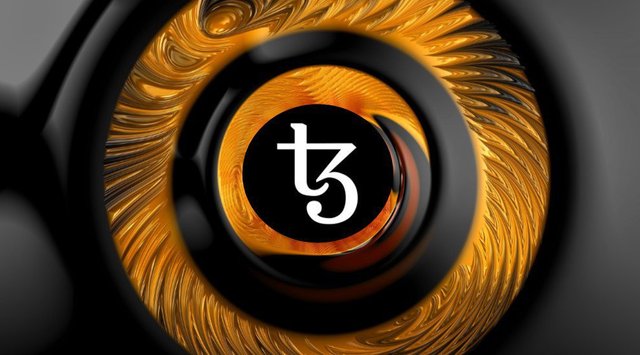BITCOIN $232 Million: Tezos Blockchain Project Finishes Record-Setting Token Sale
 The Tezos blockchain project has completed its initial coin offering, or ICO, bringing in a record-smashing $232m-worth of bitcoin and ether.
The Tezos blockchain project has completed its initial coin offering, or ICO, bringing in a record-smashing $232m-worth of bitcoin and ether.
At close, Tezos had netted 65,536 BTC (worth roughly $156m at current prices) and 360,686 ETH (worth about $76m). The crowdsale, which didn’t have a cap on the total amount of tokens sold, began on July 1, and was timed with the passage of 2,000 transaction blocks on the bitcoin network.
The total represents the most collected via an ICO to date, topping the amount raised by Bancor, a platform for launching new blockchain tokens, which raised $150m at then-current prices in mid-June.
At its heart, Tezos tackles the question of governance and development in the context of a decentralized network composed of different entities with possibly varying incentives and goals. The project has been described in the past as a “self-amending” blockchain, given that one of its central concepts is the ability for network-wide changes to be decided upon at the protocol level by stakeholders.
In a conversation with CoinDesk earlier this year, Tezos co-founder and technology chief Arthur Breitman explained that those mechanics would act as a kind of “rule of law” that could work to prevent conflicts like the ethereum blockchain split following the collapse of the smart-contract funding vehicle The DAO last summer.
He told CoinDesk in February:
“What we’re trying to bring, in some sense, is a rule of law that is, OK, if we have to have these changes because the network needs to evolve, at least we need to have a clear, decentralized procedure for making those changes.”
When launched, Tezos will support smart contracts, using proof-of-stake as a consensus algorithm. With proof-of-stake, validators essentially set aside a portion of their tokens to increase their chances of being chosen to create the next block of transactions.
THE TEAM
Tezos, co-founded by Breitman and his wife, Kathleen, has been in development since mid-2014, when the project’s white paper and position paper were first published.
Kathleen, who is CEO of the project, previously worked as senior strategy associate for distributed ledger startup R3CEV, according to her LinkedIn profile, a role she took after spending close to two years with professional services firm Accenture.
Arthur, per LinkedIn, served as a vice president for Morgan Stanley between 2013 and 2016, working as a portfolio manager for New York-based family office White Bay Group before that.
Supporting the project is the Tezos Foundation, which is based in the city of Zug, Switzerland. The group is one of a number of blockchain-focused entities to make their home in Zug, which has emerged as a hub for the industry within Europe.
According to an overview for the Tezos crowdsale, the foundation – distinct from Dynamic Ledger Solutions, the startup that developed the project – will help drive activity at the community level, organizing meetups around the world and hosting an online forum for discussion.
BETS ON BLOCKCHAIN PROTOCOLS
In some ways, the success of the Tezos fundraise points to the willingness on the part of investors and speculators to throw their support behind, not only specific applications like Status or Brave, but whole new protocols as well.
Indeed, it was the crowdsale for ethereum – itself a new kind of blockchain at the time of its appearance – that represented one of those early bets. Ethereum’s ICO brought in about $18m at then-current bitcoin prices and, today, the network’s total market capitalization sits around $20bn.
Another protocol-oriented ICO, for blockchain project EOS, has sold 224m tokens to date through a year-long crowdsale that began in June.
In the case of Tezos, venture capitalists and other notable backers attracted to the project include Tim Draper, who, as Reuters reported in May, was revealed to be backing the Tezos ICO, his first. Draper also invested an undisclosed sum in Dynamic Ledger Solutions.
Disclosure: CoinDesk is a subsidiary of Digital Currency Group, which has an ownership stake in Brave.
Update: This report has been amended with updated figures from the Tezos crowdsale.